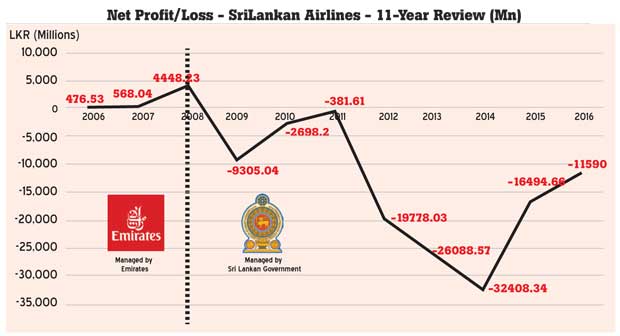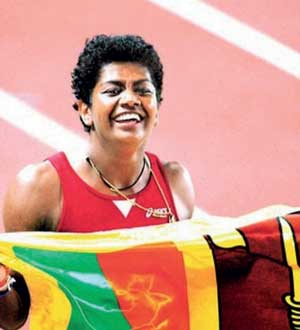19 Jul 2017 - {{hitsCtrl.values.hits}}

 It is not very difficult to explain our nation’s mentality. We are a country misled by wrong definitions and misperceptions. Our definition for patriotism, friendship, love, religion, education, sports and many other perspectives of life has been off track since the beginning.
It is not very difficult to explain our nation’s mentality. We are a country misled by wrong definitions and misperceptions. Our definition for patriotism, friendship, love, religion, education, sports and many other perspectives of life has been off track since the beginning.
Our independence stops at hosting the national flag on the day of independence. Rest of the days in the calendar we lose our independence by over depending on the government. We prefer the government to be our guardian angel and get ourselves disappointed often. Sri Lankans request the state to intervene at every single point of life. And we expect the state to play an almighty god role, who has a solution for everything and everyone.
The Sri Lankan students look for the state to intervene in their employment. Farmers and local entrepreneurs envisage to protect their livelihood by the likes and means of the state. Doctors require intervention from the state to run their medical cartel and the list goes on and on.
The only topic Sri Lankans do not want to see the state and political intervention is ‘sports’. At least let’s try to protect sports from state interference. If life is a game of cricket, the state should act the role of an umpire. Sri Lanka is in a situation where the players expect the umpire to intervene the game and be the deciding factor. Those who have a basic understanding on any game know how tragic it is when the umpires become the decider of the output of the game.

While many Sri Lankans having higher expectations on the state to intervene at every stage of life, let’s, for a moment, look at the composition of the state, in other words, the current state of our umpire.
We have a legislature, where more than 80 percent of the members have not even passed the advance level examination – in other words, an umpire who is not intelligent enough to comprehend the rules of the game.
Another 1.5 million state workers, who are the second layer of the state, of which the majority are henchmen or family members of the political class. Most of the state workers/bureaucracy have come to the state sector from the back door. According to Policy Planning and Economic Development Deputy Minister Harsha de Silva, the entire government sector carder requirement is 800,000 (current carder is 1,500,000), so no explanations needed. We are almost overstaffed by 100 percent.
The private sector and entrepreneurs are working hard and pumping tax money to pay the state bureaucracy pensions. On certain days of the year, the state worker bureaucracy (most of them) wakes up from their slumber when their palms are oiled and think how they can curtail the private sector and enlarge the state footprint.
To elaborate on cricket terms, the umpires are given decisions based on self-interest but not complying to the rules of the game. The legislature and bureaucracy are genetically interconnected and the information systems they refer to make decisions are equally corrupt. For an instance, the third umpire switches on the green light instead of red when the batsman is clearly out of the crease. The umpires behest the spectators like you and I to cover their cost and we were asked to watch the game in awful conditions.
At taxpayers’ cost
Let me not comment on the judiciary and legal system. The donkey’s years taken in resolving a land case at courts and the impeachment motion against the former chief justice attest how good our legal system is. If the chief justice was given an unfair impeachment, there is nothing left to comment indeed.
Since independence, we have tried this model and failed over and over again. A hope of relief, open economy in 1977, but since then, nothing has happened and we have already lost our competitiveness in the global markets. Our exports are dropping as a percentage of gross domestic product (GDP).
If you need further evidence on how good our state sector is, just see the figures of the enterprises they manage - the so-called state-owned enterprises (SOEs). For a decade they slurped Rs.605 billion of taxpayers’ money only on five SOEs, which is equivalent to 5 percent of GDP in 2015.
Even the profit-making SOEs are mainly state monopolies and the taxpayers are paying the inefficiency.
The state is exceptionally capable in converting the profit-making enterprises to loss-making. SriLankan Airlines is just one case and the chart says it all. If I go back to my cricket anecdote, this is how they convert the winning games to a series of whitewashing.
The latest topic on state intervention is in sports. Now it seems the state is interfering the sportsmanship of the game challenging the freedom of individuals and athletes. For Sri Lankans, cricket is a religion and a thread that connects all beads of ethnicities together into a beautiful necklace. Kumar Sangakkara said it better than anyone else in his MCC Spirit of Cricket Cowdrey Lecture.
“Cricket became an integral and all-important aspect of our national psyche. Our cricket embodied everything in our lives, our laughter and tears, our hospitality our generosity, our music our food and drink. It was normalcy and hope and inspiration in a war-ravaged island. In it was our culture and heritage, enriched by our myriad ethnicities and religions. In it we were untouched, at least for a while, by petty politics and division.”
The state-affiliated politicians intervening sports is not new in the Sri Lankan context but now it has reached to an extent unbearable anymore. In fact, a few days post the lecture by Sangakkara, the then Sports Minister Mahindanada Alutgamage had called an investigation report. Since the distance between international imagery between Sanga and the minister is a little far than the sky and the earth, Sanga was rescued before getting into hot waters.
Now after many years later, the top faster bowler Malinga is on the spotlight. It is not at all the objective of this article to discuss whether the disciplinary actions are fair or not or the appointment of Dinesh Chandimal and Upul Tharanga as cricket captains in Sri Lanka is right. We need to ensure freedom of expression of athletes.
Of course the athletes need to be disciplined and a brand of true qualities of sportsmanship. The freedom of expression was what rescued Murali when he was accused of chucking in his bowling action. Arjuna stood ramrod rigid and fearless in expressions and had a spine to stop the match on a land not in favour of him.
Arjuna was fit to pick the battles to take on the ground and to decide which battles to take on the boardrooms. Things seem heated again now. The two men of highest integrity and credibility so far are on a battle. We, the spectators, need to patiently watch carefully and see where the game is turning now.
Private vs. public property
The only Olympic medallist in our generation, Susanthika Jayasinghe, has also connected to a different side of the story. On Susanthika’s matter, the sports minister attempting to pass a law avoiding selling or auctioning medals won by athletes is far more catastrophic.
Susanthika’s Silver medal won in Sydney Olympics is a moment of pride indeed for Sri Lankans. True, we were the cheerleaders and she was contributed by the taxpayers’ money. But we need to agree the medal she won is a private property owned by her and we do not have any ownership. It is simple as a young kid winning a medal in the annual sports meet in a government school. Studying through free education doesn’t mean the medal the kid won is owned by the Education Ministry.
Susanthika is someone who proved herself on the track in the pet event 200m in Olympics to be the second fastest iron lady on the planet.
In her own words: “The minister of sports will change; the governments will change but my achievement as an Olympic winner will always be in history. It is inerasable. I was the only woman to do it in entire Asia and my feet were able to vanquish strong women who came on the track from over 200 countries, which no one can deny.”
Not that we encourage her to auction the medal but it is her call. Whether Susanthika needs to be appointed as a coach at the Sports Ministry and her personal life is a different question but the property rights should not be allowed to be challenged by the state, which defends in inaction on the ministers who sell the vehicle permits over taxpayers’ money.
The ownership of the medal is a private property owned by Susanthika is a clear cut fact and similar occasions have occurred in Olympic history.
Let’s look at the history of Olympic medal auctions before we jump the gun.
Wladimir Klitschko won a Gold medal in boxing for Ukraine at Atlanta Olympics in 1996. He decided to auction the medal to help the Ukrainian children in getting involved in sports. Surprisingly, a mysterious bidder who bought the medal for US $ 1 million, returned the medal back to Klitschko.
Anthony Ervin, a United States swimmer, donated money to tsunami victims in Indonesia by auctioning his medal he won when he was at the age of 22 in 2000, the same Olympic Susanthika won the Gold medal.
Polish swimmer Otylia Jedrzejczak dedicated her medal to the kids suffering from leukaemia in Poland. She said, “I don’t need the medal to remember; I know I’m the Olympic champion. That’s in my heart.”
The history of Olympic medal auctions teaches us lessons on what kind of athletes we need as a nation and the real meaning of sportsmanship. Those examples provide answers from Sydney Olympics to IPL.
The reasons of auctioning the medal by Wladimir Klitschko, Anthony Ervin and Otylia Jedrzejczak are undoubtedly harder than winning an Olympic medal itself. That was only possible in history because they had the property rights to do whatever they want to do with the medal the respective athletes won.
Although Susanthika may have her reasons to auction out her hard work encompassed in the form of a Silver medal, the government has no right imposing such a law, banning the auctioning of medals. The discussions on the law were diluted but we need to ensure no such laws for the betterment of sports.
After all, a medal or trophy won is private property. These medals or trophies won by the athletes must be perceived as a gateway for the greater good and unselfish gains. A medal may succumb to the wear and tear and may fade away, however the memory of the act will live on for a lifetime.
The reason Susanthika claims she had to give up the medal is indeed sad. But we should not forget there were sports men and women who had bigger hearts to give up a lifetime of achievement for better causes. That was only possible because of the protection of the property rights. This is similar to a sport – the umpire introduces a rule on what the players of the game should do with their medals, trophies and awards post the game.
The fate of Sri Lankans is not different to Lasith and Susanthika. The state intervention is coming to handicap every citizen’s freedom sooner if we fail to understand the calamitous of the state. It may be on sports or in life. This is not only valid for Sri Lanka but across the orb.
The Nobel laureate Milton Friedman justifies how bad is state intervention. “If you put the government in charge of the Sahara Desert, in five years there’d be a shortage of sand.”
(Dhananath Fernando is Chief Operating Officer of Advocata Institute, an independent Sri Lankan think tank working for economic freedom. He could be reached via [email protected])
07 Jan 2025 7 hours ago
07 Jan 2025 7 hours ago
07 Jan 2025 8 hours ago
07 Jan 2025 07 Jan 2025
07 Jan 2025 07 Jan 2025